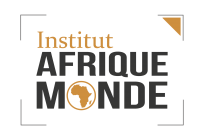Contribution of interreligious dialogue to pacification in West Africa.
Côte d’Ivoire, Senegal, Benin
Study carried out by Camille KUYU, Nicolas KLINGELSCHMITT & Emile MOSELLY BATAMACK
Interreligious dialogue is not only a dialogue between religions and/or their specialists. In fact, it is always men who engage in dialogue, not institutions. This is why it is necessary to distinguish between different levels of dialogue, in particular that of religious leaders, that of specialists, and the daily dialogue. Interreligious dialogue can be a dialogue between theologians or between religious leaders, representing their respective religions. Participants in this type of dialogue seek to reach common positions on particular events or situations or on themes and issues they have in common.
The goal that the participants want to achieve is the end of violence between believers of different religions. They are convinced that all religions aspire to peace, and that violence goes against the very essence of their faith. This provides them with a common ground that makes the dialogue fruitful.
These meetings are also a means to seek to heal the wounds of the past and to re-read history in a dynamic way, and many seminars and symposiums are organized on inter-religious dialogue. Participants in this type of dialogue are most often university educated and knowledgeable. However, they do not represent the official views of the communities or churches to which they belong. These are generally interreligious encounters between so-called “intellectual” persons and therefore capable of an objective study of facts and traditions.
Finally, there is the daily dialogue between men and women in their daily lives. It is not often that they raise strictly religious issues. Instead, they communicate about the facts of daily life. What is sought in this type of dialogue is the knowledge of the other, not to convert him, but to be enriched by his spiritual experience. True dialogue does not seek to impose a point of view, but to discover the positive values present in the other’s conviction. What is positively sought is to create joint projects that foster intense collaboration. Sharing concerns or taking action together promotes a climate of peaceful coexistence.
The main objective of this study, commissioned by the Association of Friends of Master Chin Kung, is to identify and evaluate the various inter-religious dialogue initiatives past or ongoing in West Africa, specifically in Côte d’Ivoire, Senegal and Benin, with a view to strengthening their effectiveness and coherence.
The three countries each have their own specificities. But they all have in common the fact that they have each experienced, in their own way, serious socio-political crises that have led to wars (Côte d’Ivoire, Senegal), coups d’état (Benin), or even community violence (Côte d’Ivoire). Religious leaders have played a key role in resolving these crises, particularly when the instrumentalization of religions for political purposes leads to community violence.
Today, the three countries are enjoying a peaceful climate and are on the way to economic and political stability. But this should not hide the fact that they, like almost all West African countries, are under threat from Islamist extremists. Côte d’Ivoire was hit by terrorist attacks in 2016. Senegal is known for its tolerance. But Salafists are increasingly present, especially in peripheral areas of the country, totally neglected by the State and where the brotherhoods are not very well integrated. Fortunately, Sufi brotherhoods[1] are a bulwark against terrorist attacks. At the gateway to Benin, towards the Nigerian border, Boko Haram‘s threats are real, although they have been under control until now.
It is in these contexts of relative stability and terrorist threats that conflict prevention, peacekeeping and peacebuilding initiatives are multiplying. These initiatives, large or small, are the work of state institutions, religious communities, local authorities, civil society organizations or individuals. They highlight the need for dialogue to build peace. What is the relevance of inter-religious dialogue as a means of conflict prevention and regulation? What are the impacts of the initiatives and experiences of inter-religious dialogue observed in Côte d’Ivoire, Senegal and Benin? What is the sustainability of these initiatives? What has been the role of religious leaders in the resolution of certain crises? What good practices should be adopted with a view to possible replication in other regions of Africa or the world? All these questions are at the heart of this study.
This report is divided into three parts. The first concerns inter-religious dialogue in Côte d’Ivoire. The next two parts are devoted to the same issue in Senegal and Benin respectively.

